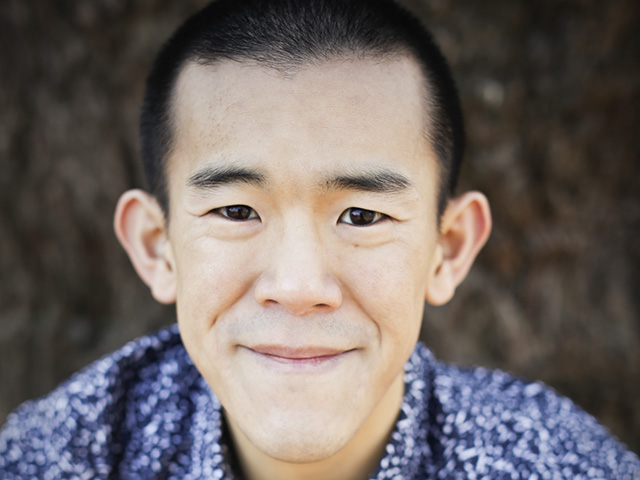Museum hosts “I Contain Multitudes,” a presentation by science writer Ed Yong, November 17
For immediate release ‐ October 10, 2016
Contact: Jon Pishney, 919.707.8083. Images available upon request

Author Ed Yong. Photo by Urszula Sołtys.
RALEIGH — Every animal, whether human, squid or wasp, is home to millions of bacteria and other microbes. With humor and depth, New York Times best-selling author Ed Yong takes us on a tour through our microbial partners, and introduces us to the scientists on the front lines of discovery, when he presents “I Contain Multitudes” at the North Carolina Museum of Natural Sciences, Thursday, November 17, 7 p.m. Free.
The microbes in our bodies are part of our immune systems and protect us from disease. In the deep oceans, mysterious creatures without mouths or guts depend on microbes for all their energy. Bacteria provide squid with invisibility cloaks, help beetles to bring down forests and allow worms to cause diseases that afflict millions of people. In his presentation, Yong prompts us to look at ourselves and our animal companions in a new light — less as individuals and more as the interconnected, interdependent multitudes we are.
Yong is a staff science writer at The Atlantic. His work has appeared in Wired, The New York Times, Nature, the BBC, New Scientist, Scientific American, The Guardian and more. His first book, “I Contain Multitudes: The Microbes Within Us and a Grander View of Life,” was on the NY Times Best Seller list in September (#10) and October (#13), and will be available for purchase and signing at the event. Book pre-orders can be made through the Quail Ridge website [http://www.quailridgebooks.com/event/yong16] or by emailing orders@quailridgebooks.com.
NOTE: Space is limited. Pre-registration is recommended. Register now at http://bit.ly/edyonglecture.
This presentation is co-sponsored by the NC Museum of Natural Sciences, NC State University College of Sciences and Quail Ridge Books. This presentation is also held in conjunction with the Museum’s current featured exhibition, “The Secret World Inside You,” which uses larger-than-life models, computer interactives, videos and art installations to explore the rapidly evolving science that is revolutionizing how we view human health and understand the inner workings of our bodies. The exhibition will be open until 7 p.m. the evening of the presentation, with last entry at 6 p.m. For exhibition tickets or more information, visit naturalsciences.org/secretworld.
The North Carolina Museum of Natural Sciences (11 W. Jones St. and 121 W. Jones St.) in downtown Raleigh, is the state’s most visited cultural attraction. It is an active research institution that engages visitors of every age and stage of learning in the wonders of science and the natural world, drawing them into the intriguing fields of study that are critical to the future of North Carolina. Hours: Mon.- Sat., 9 a.m.-5 p.m., and Sun., noon-5 p.m. Admission is free. Visit the Museum on the Web at www.naturalsciences.org. Emlyn Koster, PhD, Director; Susan Kluttz, Secretary, N.C. Department of Natural and Cultural Resources; Pat McCrory, Governor.
About the North Carolina Department of Natural and Cultural Resources
The N.C. Department of Natural and Cultural Resources (NCDNCR) is the state agency with a vision to be the leader in using the state’s natural and cultural resources to build the social, cultural, educational and economic future of North Carolina. Led by Secretary Susan Kluttz, NCDNCR’s mission is to improve the quality of life in our state by creating opportunities to experience excellence in the arts, history, libraries and nature in North Carolina by stimulating learning, inspiring creativity, preserving the state’s history, conserving the state’s natural heritage, encouraging recreation and cultural tourism, and promoting economic development.
NCDNCR includes 27 historic sites, seven history museums, two art museums, two science museums, three aquariums and Jennette’s Pier, 39 state parks and recreation areas, the N.C. Zoo, the nation’s first state-supported Symphony Orchestra, the State Library, the State Archives, the N.C. Arts Council, State Preservation Office and the Office of State Archaeology, along with the Division of Land and Water Stewardship. For more information, please call (919) 807-7300 or visit www.ncdcr.gov.

